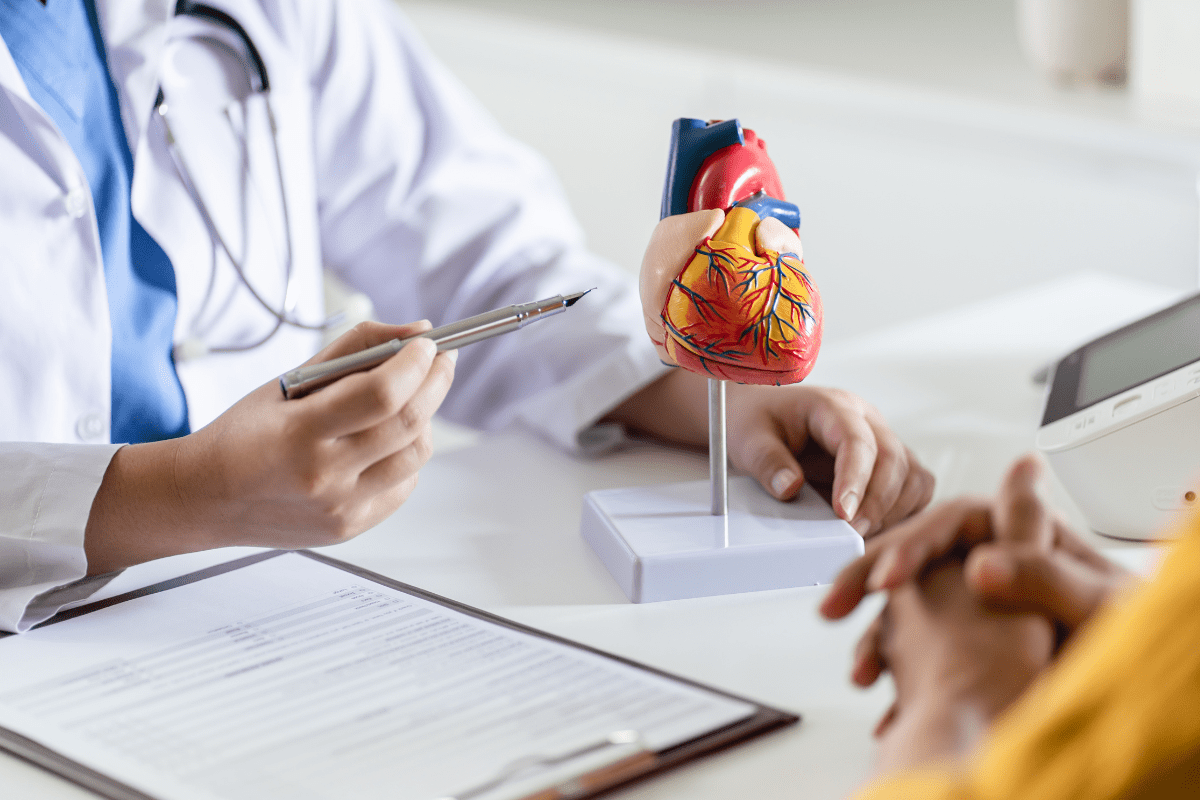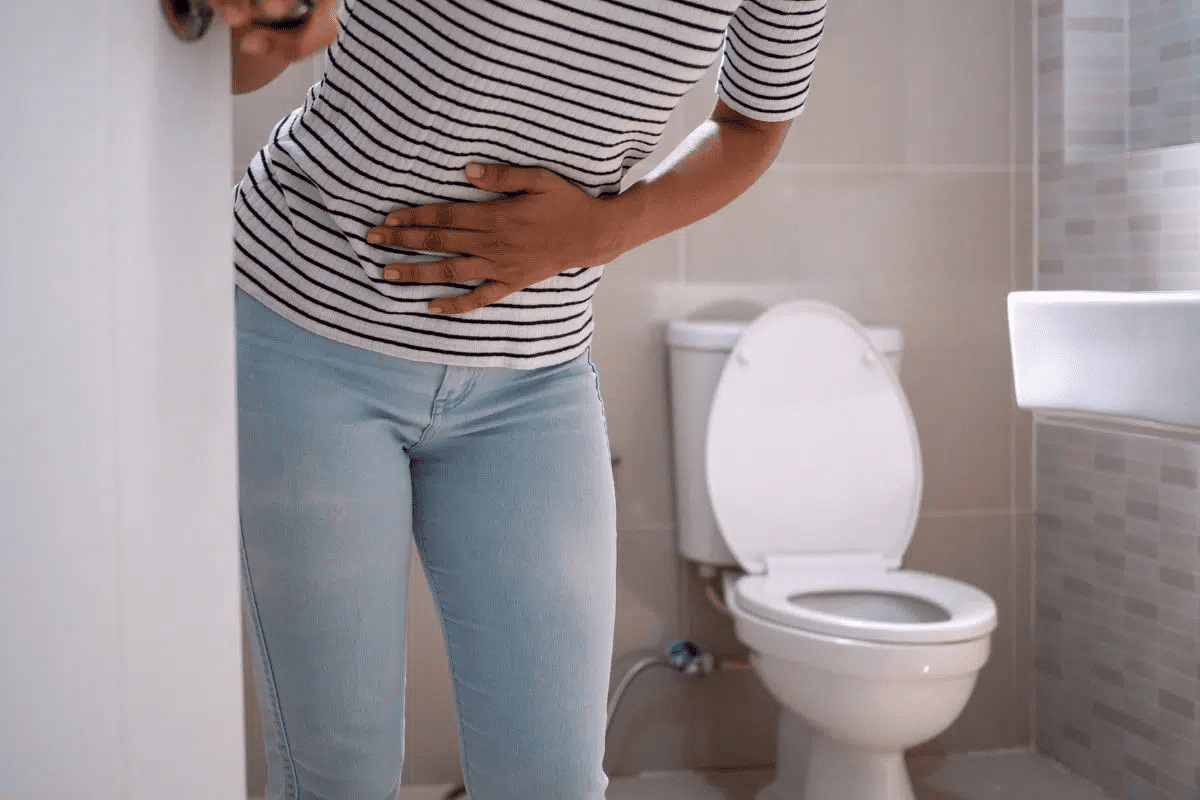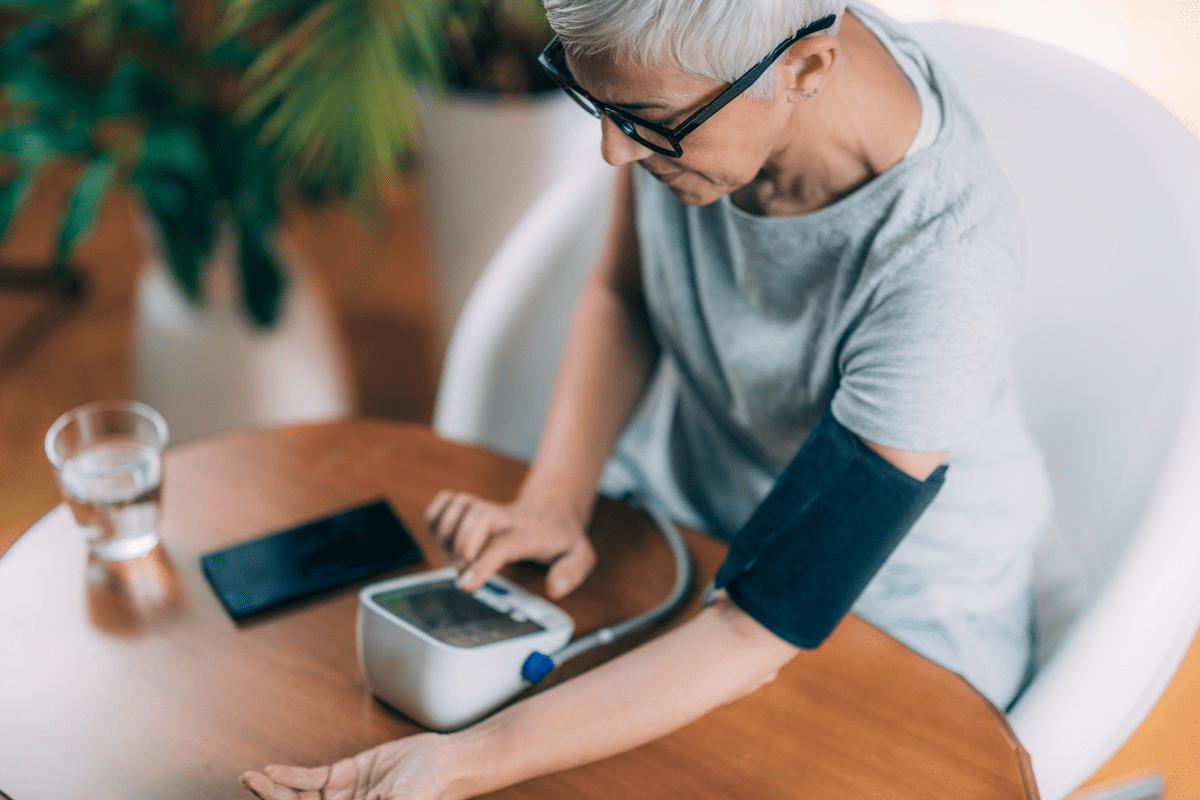Last Updated on November 26, 2025 by Bilal Hasdemir
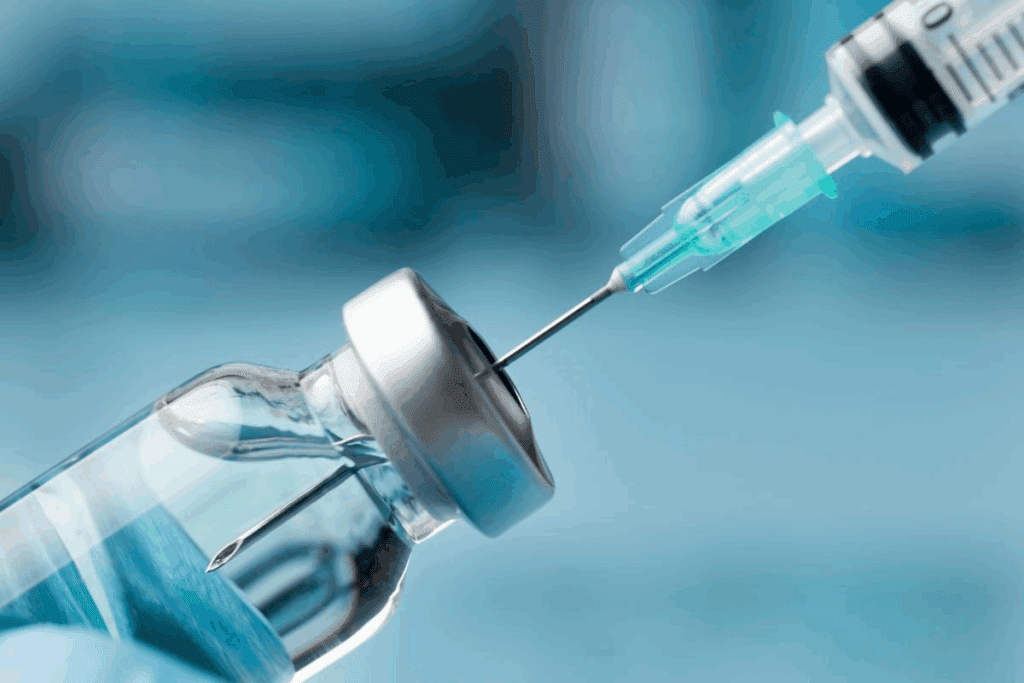
At Liv Hospital, we know you might have questions about steroid injections for inflammation. A cortisone shot is a common treatment that can help a lot. Usually, you’ll start feeling better in 3 to 5 days, and by 7 to 8 days, you’ll see big improvements.How long for a steroid injection to work? Get the ultimate guide on onset time and learn the critical facts about drinking alcohol after.
The time it takes to feel better can change based on where the injection is and your own health. We focus on you at Liv Hospital. We make sure you know all about cortisone shots and how to live your life after, including drinking alcohol.
Key Takeaways
- Steroid injections typically start relieving symptoms within 3 to 5 days.
- Most patients experience significant improvement by 7 to 8 days.
- The effectiveness of a cortisone shot can depend on the injection site.
- Individual factors can influence the onset of relief.
- It’s essential to follow medical guidance on lifestyle choices after a steroid injection.
Understanding Steroid Injections
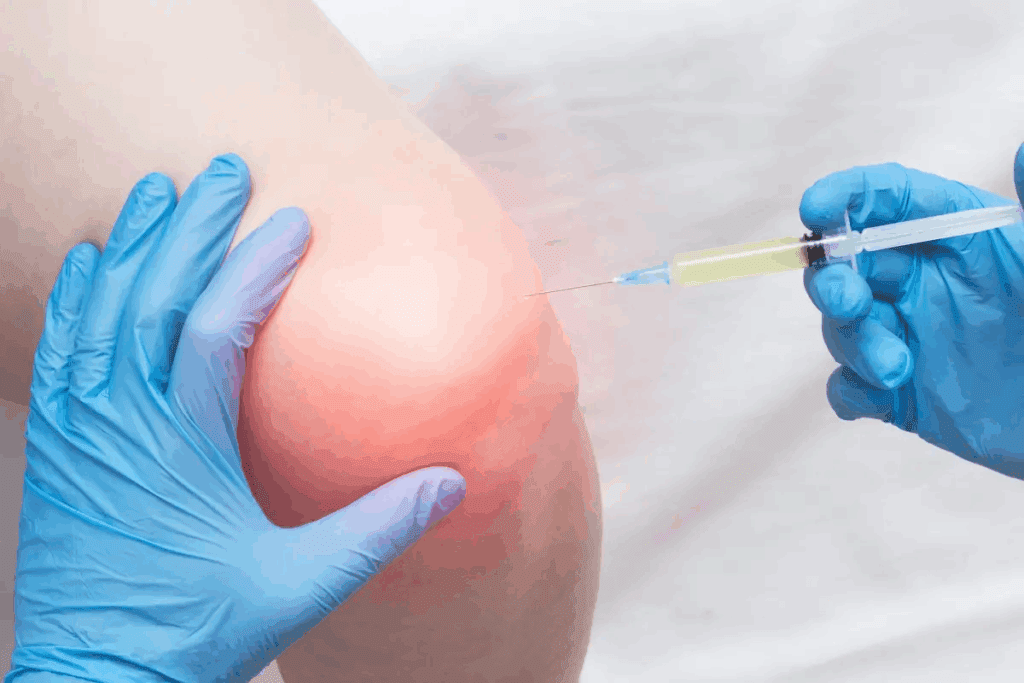
Steroid injections are a key treatment for many with inflammatory diseases. They help ease pain and reduce swelling in different body parts.
What Are Steroid Injections?
Steroid injections, or cortisone shots, are a medical treatment. They involve injecting corticosteroids into the body. Corticosteroids are strong anti-inflammatory medicines that help with arthritis, tendinitis, and bursitis.
These shots mix a local anesthetic with a corticosteroid. The anesthetic numbs the area, making the procedure less painful. The corticosteroid then fights inflammation.
Common Types of Steroid Injections
There are many types of steroid injections, each with its own use and benefits. Some common corticosteroids include:
| Type of Steroid | Common Uses | Duration of Action |
| Methylprednisolone | Arthritis, tendinitis | Several weeks |
| Triamcinolone | Skin conditions, joint inflammation | Several weeks to months |
| Betamethasone | Tendinitis, bursitis | Several weeks |
Medical Conditions Treated with Steroids
Steroid injections treat many conditions with inflammation. Some common ones include:
- Arthritis: Osteoarthritis, rheumatoid arthritis, and other types can be treated. This reduces joint inflammation and pain.
- Tendinitis: Corticosteroid injections help with tendon inflammation. This is useful for tennis elbow or Achilles tendinitis.
- Bursitis: Steroid injections can reduce bursitis inflammation. Bursae are fluid-filled sacs that cushion joints and reduce friction.
Knowing what steroid injections are, the types available, and the conditions they treat helps patients make better choices.
How Long For a Steroid Injection to Work
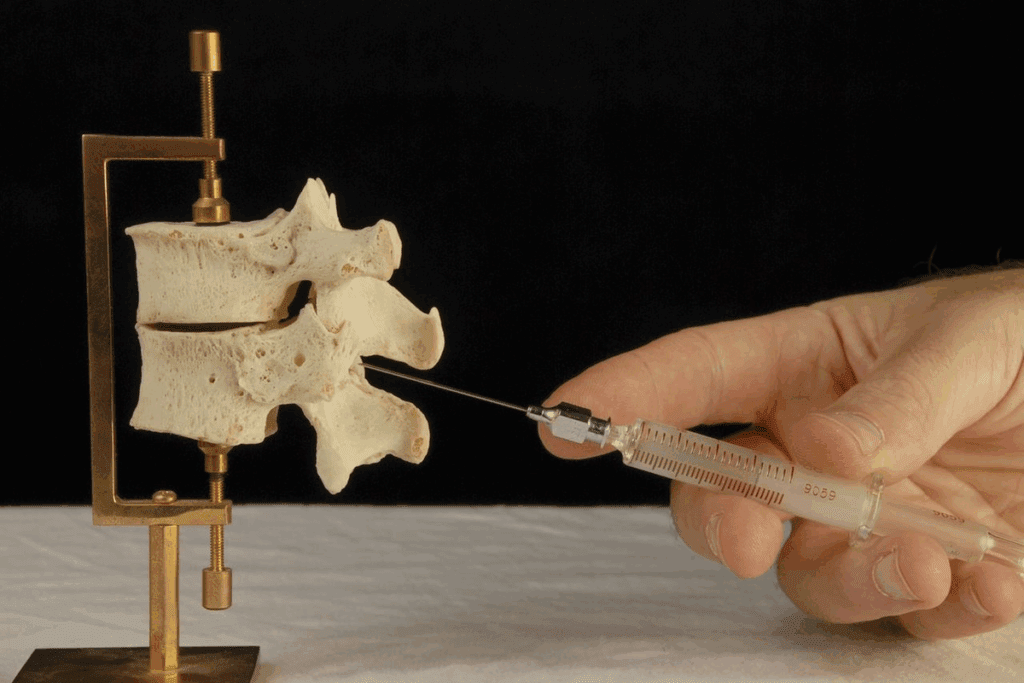
Knowing how long a steroid injection works is key to setting realistic hopes. These injections are used to fight inflammation and are known to be effective. But how fast you feel better can differ a lot from person to person.
Initial Response Timeline
Most people start feeling better within 3 to 5 days after getting a steroid injection. You might notice less pain and swelling. This is a good sign that the treatment is working, but it might not be right away.
“The onset of relief can vary, but most patients experience significant improvement by the end of the first week.” – Medical Expert
F.ull Effect Timeline
The steroid’s full effect usually kicks in 7 to 8 days after the shot. At this time, the steroid’s anti-inflammatory powers are strongest, giving you a lot of relief. It’s important to wait and let the treatment do its job.
When to Expect Maximum Relief
You’ll likely feel the best within a week to ten days. By then, the swelling should be down a lot, and you’ll see a big improvement. But everyone is different, and some might need more time to feel fully better.
In summary, while the exact time it takes for a steroid injection to work can vary, most people start feeling better in a few days to a week. Knowing this timeline helps patients plan and make better choices for their health.
Factors Affecting How Quickly Steroid Injections Work
The speed at which steroid injections work can change a lot. It’s key to know why this happens. This knowledge helps in setting the right expectations and getting the best results from treatment.
Injection Site Considerations
Where you get the steroid injection matters a lot. Joints and soft tissues react differently from other areas.
Key considerations for injection sites include:
- Accessibility of the injection site
- Proximity to the affected area
- Specific anatomy of the injection site
Type and Dosage of Steroid Used
The type and amount of steroid used also play a big role. Each steroid is different in strength and how long it lasts.
| Steroid Type | Onset of Action | Duration of Action |
| Methylprednisolone | 1-3 days | Several weeks |
| Triamcinolone | 1-2 days | Several months |
Severity of Inflammation
How bad the inflammation is can also affect how fast you feel better. More severe cases might need stronger steroids.
Knowing how bad the inflammation is helps doctors choose the right treatment for you.
Patient Age and Overall Health
Things like age and health can also change how well you respond to steroid injections. Older people or those with health issues might react differently.
Healthcare providers can guess how fast a steroid injection will work. They can then adjust the treatment to fit your needs better.
Individual Variations in Steroid Injection Response
Steroid injections are used to treat many inflammatory conditions. But how people react to these injections can vary a lot. It’s important to know this to manage expectations and get the best results.
Why Some People Respond Faster Than Others
Several things can affect how fast someone reacts to steroid injections. These include how severe the inflammation is, the condition being treated, and individual variation in steroid response. For example, people with acute inflammation might see results sooner than those with chronic conditions.
Genetic factors also matter a lot. Studies have found that genetics can change how well the body uses corticosteroids. This can lead to different results for different people.
Genetic Factors in Steroid Response
Genetic factors play a big role in how the body reacts to steroids. Some genes can affect how well the body fights inflammation. This can change how well steroid injections work.
| Genetic Factor | Impact on Steroid Response |
| Variation in corticosteroid receptor genes | Affects the sensitivity of cells to steroids |
| Polymorphisms in genes involved in steroid metabolism | Influences the rate at which steroids are broken down |
| Genetic variations affecting cytokine production | Impacts the inflammatory response and steroid efficacy |
Previous Treatment History
A person’s previous treatment history can also affect their response to steroid injections. For instance, those who have had many injections before might not get the same results. This could be because their body has built up a tolerance or the condition has changed.
Understanding why people react differently to steroid injections helps doctors tailor treatments better. This way, they can meet the specific needs of each patient.
The Science Behind Steroid Injections
Steroid injections are key in treating many inflammatory conditions. But have you ever wondered how they work? They help with conditions like arthritis and tendinitis. Knowing how they work shows their effectiveness.
How Corticosteroids Reduce Inflammation
Corticosteroids are the main part of steroid injections. They work by stopping the immune system’s inflammation response. Inflammation is a natural body response to injury or infection. But in cases like arthritis, it can become chronic and cause a lot of pain and damage.
Corticosteroids act like cortisol, a hormone our body makes. They reduce inflammation by lowering the body’s production of pro-inflammatory chemicals. This leads to less swelling, pain, and redness.
Difference Between Cortisone and Other Steroids
It’s important to know the difference between corticosteroids and anabolic steroids. Corticosteroids are not anabolic; they don’t help muscles grow. Instead, they’re made to reduce inflammation and calm the immune system.
Cortisone is a common corticosteroid used in injections. It’s good for treating localized inflammation. Other corticosteroids like triamcinolone and methylprednisolone are used for different conditions, and they last longer.
| Corticosteroid Type | Common Use | Duration of Action |
| Cortisone | Localized inflammation | Short to medium |
| Triamcinolone | Chronic inflammatory conditions | Medium to long |
| Methylprednisolone | Severe inflammation | Medium |
Localized vs. Systemic Effects
One great thing about steroid injections is that they can target specific areas. When injected into a joint or tendon, they can reduce inflammation there. This doesn’t usually affect the rest of the body much.
But some of the corticosteroids can get into the bloodstream. This means it could affect other parts of the body. How much it affects other areas depends on the dose and type of corticosteroid.
Understanding how steroid injections work helps us see their role in treating inflammation. They reduce inflammation and control the immune response. This gives relief to many patients.
What to Expect After Receiving a Steroid Injection
We guide you through the typical effects and recovery process after a steroid injection. This helps you understand what to expect in the days and weeks that follow.
Immediate Post-Injection Effects
Right after getting a steroid injection, you might feel some pain or discomfort at the site. This is usually short-lived and can be eased with ice packs or over-the-counter pain meds. Some people might see a slight increase in symptoms right after the injection. But this usually goes away within a few hours.
Days 1-3 After Injection
In the first few days, the pain at the injection site should lessen. You’ll start to feel the steroid’s effects as it reduces inflammation. It’s important to rest the area and avoid hard activities to let the steroid work best. Some might experience a steroid flare, a brief spike in pain and inflammation, within the first 48 hours.
First Week Recovery Timeline
By the end of the first week, most people feel a big relief from their symptoms. The recovery timeline can vary, but most see the best results in 7 to 10 days. It’s key to follow any post-injection instructions from your healthcare provider, including any physical therapy or follow-up appointments.
Potential “Steroid Flare” Reaction
A steroid flare is a temporary reaction some people have after a steroid injection. It’s marked by increased pain and inflammation at the site. Though it might seem scary, a flare is usually short and can be managed with rest, ice, and pain meds. If the flare is severe or lasts, it’s important to reach out to your healthcare provider for advice.
Duration of Steroid Injection Benefits
Steroid injections can offer relief for varying lengths of time. The exact duration depends on several factors, which we will discuss.
Average Length of Symptom Relief
The relief from symptoms after a steroid injection can last from weeks to months. On average, relief can last from 6 to 12 weeks. But this can vary greatly from person to person.
Factors Affecting Duration of Benefits
Several factors can affect how long the benefits of steroid injections last. These include:
- The underlying condition being treated
- The specific type and dosage of steroid used
- The severity of inflammation at the time of injection
- Individual patient factors such as age and overall health
Understanding these factors is key to managing expectations and deciding on follow-up injections.
When to Consider Follow-up Injections
Follow-up injections are needed when the initial injection’s benefits fade and symptoms return. The decision to get more injections depends on how well the first treatment worked and how severe the symptoms are when they come back.
It’s vital to talk to a healthcare provider about what to do next. They can decide if more injections are needed and discuss any risks or benefits of getting them again.
Alcohol and Steroid Injections: The Facts
Patients need to know how alcohol affects steroid injections. Steroid injections treat many inflammatory conditions. Patients often wonder if drinking alcohol is safe during treatment.
How Alcohol Affects Your Body’s Response to Steroids
Drinking alcohol might change how your body reacts to steroid injections. Moderate drinking usually doesn’t mess with steroid effectiveness. But too much alcohol could make inflammation worse or slow down healing. We’ll dive deeper into this.
Too much alcohol can harm your body in many ways. It can make inflammation worse and slow healing. This is bad news for steroid injections, which aim to reduce inflammation and help healing.
| Alcohol Consumption Level | Potential Impact on Steroid Effectiveness |
| Moderate | Unlikely to directly interfere with steroid effectiveness |
| Excessive | May increase inflammation or hinder recovery |
Research on Alcohol’s Impact on Steroid Effectiveness
Scientists are always studying how alcohol affects steroid injections. They’ve found that moderate drinking doesn’t usually harm steroid treatment results. But drinking too much can mess with your body’s fight against inflammation and healing.
Misconceptions About Alcohol and Steroid Treatments
There are many wrong ideas about alcohol and steroid treatments. Some think any alcohol ruins steroid injections. Others believe alcohol has no effect. The real story is in the middle. It’s key for patients to know the facts to choose the best care.
Understanding alcohol’s effect on steroid injections helps patients make better choices. This way, they can support their health and recovery during treatment.
Can You Drink Alcohol After a Cortisone Shot?
Getting a cortisone shot helps with pain and swelling. But it makes people wonder about drinking after. We want to help you know how to care for yourself after.
Medical Recommendations for the First 24-48 Hours
Doctors usually say no alcohol for 24 to 48 hours after a shot. This time is key for the steroid to work and for healing to start.
Moderate vs. Excessive Alcohol Consumption
It’s important to know the difference between a little drink and too much. A bit of alcohol might not hurt the shot’s effect. But too much can mess with how your body reacts and might cause more problems.
Risks of Combining Alcohol with Steroid Treatments
Drinking alcohol with steroids can lead to:
- More stomach problems
- Higher blood pressure
- Problems with the liver processing the steroid
- Less effect from the cortisone shot
What Doctors Typically Advise Patients
Doctors often tell patients to skip alcohol with steroids because of these risks. They also suggest a healthy lifestyle to get the most from the shot.
Knowing these tips helps you decide on drinking after a cortisone shot. It makes your recovery easier.
How Alcohol Affects Recovery After Steroid Injections
Drinking alcohol can really mess with how your body heals after a steroid shot. These shots help your body fight off pain and inflammation. But alcohol can slow down this healing process.
Impact on Inflammation Processes
Steroid shots are meant to cut down on swelling. But drinking too much can actually make swelling worse. It’s best to limit your drinking to let the steroid do its job.
Effects on Immune Function
Alcohol can also weaken your immune system. This is bad news for healing after a steroid shot. Drinking too much can make it harder for your body to get better.
Influence on Pain Management
Managing pain is key after a steroid shot. Alcohol can make pain feel worse over time. This makes it harder to handle pain while you’re recovering.
Potential for Delayed Healing
Alcohol’s effects on swelling, immune function, and pain can slow down healing. Drinking too much can make it take longer to recover. It’s important to watch your drinking to help your body heal faster.
Side Effects of Steroid Injections
It’s important to know the side effects of steroid injections. They can help with inflammation and pain, but also have downsides.
Common Side Effects
Side effects include pain at the injection site and temporary worsening of symptoms. You might also see skin changes like thinning or discoloration. Mood swings or trouble sleeping are other possible effects.
- Pain or discomfort at the injection site
- Temporary flare-up of symptoms
- Skin changes (thinning, discoloration)
- Mood changes
- Insomnia
How Alcohol May Exacerbate Side Effects
Drinking alcohol after a steroid injection can make side effects worse. It might lead to stomach issues, interact with other drugs, and slow healing.
Be careful with alcohol during steroid injection treatment to avoid problems.
Rare but Serious Complications
Though rare, serious issues can happen with steroid injections. These include infections, allergic reactions, or nerve damage.
- Infection at the injection site
- Allergic reactions to the steroid
- Nerve damage
When to Contact Your Doctor
If you have severe or lasting side effects, call your doctor. Look out for increased pain, swelling, or redness, fever, or trouble moving the area.
Talk to your healthcare provider quickly to manage side effects and avoid bigger problems.
Conclusion
Steroid injections are a common treatment for many inflammatory conditions. It’s important to know how they work and their possible side effects. This knowledge is key to a successful recovery.
These injections can bring a lot of relief. But it’s vital to understand what affects their success. This includes the type and amount of steroid, how severe the inflammation is, and the patient’s health.
Alcohol use is also a big factor in recovery. While a little alcohol might not hurt, too much can cause problems and slow down healing.
Patients should listen to their doctors about drinking after getting a steroid shot. Making smart choices can help get the most out of the injections and avoid risks.
Knowing how steroid injections, alcohol, and recovery work together helps patients take charge of their health. This can lead to better results overall.
FAQ
How long does it take for a steroid injection to start working?
You might feel relief in 3 to 5 days. The best results usually come in 7 to 10 days.
Can you drink alcohol after a cortisone shot?
It’s best to avoid alcohol for 24 to 48 hours after a shot. Alcohol might make the steroid less effective and increase side effects.
How does alcohol affect the body’s response to steroid injections?
Alcohol can make inflammation worse. It can also affect how your body fights off infections and manages pain. This might slow down healing and make the injection less effective.
What are the common side effects of steroid injections?
You might feel pain or discomfort where the shot was given. You could also see skin thinning or changes in blood sugar. Rare but serious problems like infections or tendon ruptures can happen too.
Can alcohol exacerbate the side effects of steroid injections?
Yes, alcohol can make some side effects worse. It might increase the risk of stomach problems or affect blood sugar control.
How long do the benefits of steroid injections last?
Relief from symptoms can last from weeks to months. It depends on the steroid type, dosage, condition, and individual factors.
When should I consider a follow-up steroid injection?
You might need another injection if the relief doesn’t last long enough. Your doctor will decide based on how you respond.
Are there any specific guidelines for alcohol consumption after a steroid injection?
After the first 24 to 48 hours, moderate drinking is usually okay. But always check with your doctor first.
Can I drink alcohol after a steroid injection if I’m taking other medications?
If you’re on other meds with the injection, talk to your doctor. Some combinations can be risky.
How do steroid injections work to reduce inflammation?
They deliver corticosteroids directly to the inflamed area. This reduces swelling, pain and improves function.
What factors can affect how quickly a steroid injection works?
The injection site, steroid type, and dosage, inflammation level, and patient factors like age and health matter. These can influence how fast and effective the injection is.
Reference:
Stout, A., Friedly, J., & Standaert, C. J. (2019). Systemic absorption and side effects of locally injected glucocorticoids. PMCID: PMC6547517. https://pmc.ncbi.nlm.nih.gov/articles/PMC6547517


